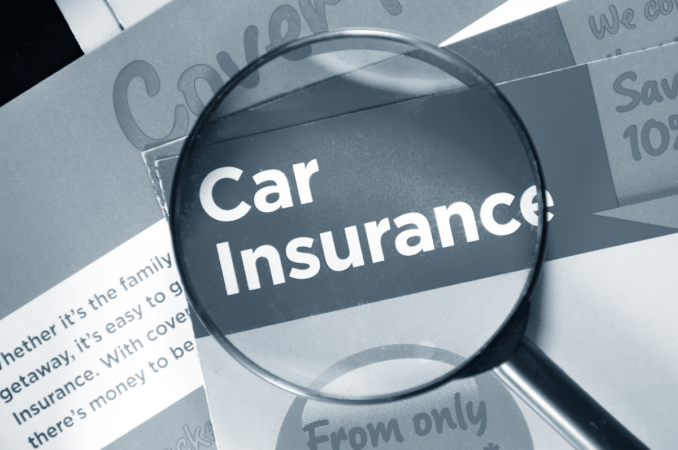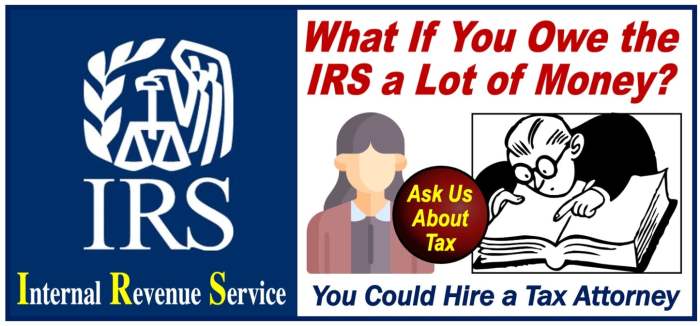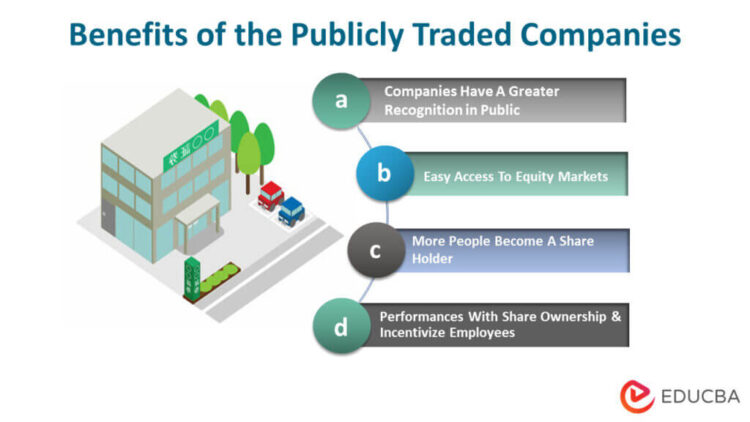
What happens if you owe an insurance company money? It’s a question that can send shivers down your spine, especially if you’re already feeling the financial crunch. The truth is, owing money to an insurance company isn’t just a matter of a late payment; it can have serious consequences that ripple through your financial life. From legal battles to damaged credit scores, the ramifications can be significant.
Let’s dive into the world of insurance debt, explore the reasons you might find yourself in this situation, and discover the steps you can take to manage and potentially resolve the issue.
Reasons for Owing Money to an Insurance Company
It’s not uncommon to owe money to an insurance company, and the reasons behind it can vary. Understanding these reasons can help you avoid potential debt and maintain a positive relationship with your insurer.
Unpaid Premiums
Failing to pay your insurance premiums on time is a common reason for owing money. Premiums are the monthly or annual payments you make to maintain your insurance coverage. Insurance companies rely on these premiums to cover the costs of claims and administrative expenses. When premiums are not paid, they can accumulate into a significant debt, potentially leading to policy cancellation and gaps in your coverage.
- Missed Payments: If you forget to pay your premium or encounter financial difficulties, you might fall behind on your payments. This can result in late fees and penalties, increasing your debt.
- Insufficient Funds: Sometimes, your bank account might have insufficient funds to cover the premium payment. This can lead to bounced checks or declined payments, incurring additional charges.
- Payment Disputes: Disputes over the premium amount or billing errors can also contribute to unpaid premiums. It’s important to communicate with your insurance company promptly to resolve any discrepancies.
Claims that Exceed Coverage
Even with insurance, you might still owe money if your claim exceeds your policy’s coverage limits. This can happen in various situations, including:
- Deductibles: Most insurance policies have deductibles, which are the amount you pay out of pocket before your insurance coverage kicks in. If your claim costs exceed your deductible, you’ll be responsible for the remaining amount.
- Coverage Limits: Insurance policies have coverage limits, the maximum amount your insurer will pay for a specific claim. If your claim costs exceed this limit, you’ll be responsible for the difference.
- Exclusions: Insurance policies typically have exclusions, which are specific events or circumstances that are not covered. If your claim falls under an exclusion, you’ll be responsible for the entire cost.
Consequences of Unpaid Insurance Debts: What Happens If You Owe An Insurance Company Money

Ignoring an insurance debt can have serious consequences that go beyond just a late payment fee. It can impact your financial standing and make it difficult to obtain insurance in the future.
Legal Ramifications
Failing to pay your insurance premiums can lead to legal action. Insurance companies have the right to pursue unpaid debts through the courts. If a lawsuit is filed, a judge could issue a judgment against you, which means you are legally obligated to pay the debt.
- Judgments can be recorded on your credit report. This can negatively impact your credit score and make it difficult to obtain loans, mortgages, or even rent an apartment.
- Your wages or bank accounts can be garnished. This means that a portion of your income or funds could be taken to pay off the debt.
- You could face property liens. This means the insurance company could place a claim on your property, making it difficult to sell or refinance.
Impact on Credit Scores
Unpaid insurance debts can significantly harm your credit score. This can make it harder to get approved for loans, mortgages, or even credit cards. A lower credit score can also lead to higher interest rates on loans, which can increase the overall cost of borrowing.
Difficulty Obtaining Future Insurance
Insurance companies use credit scores and payment history to assess risk. If you have a history of unpaid insurance debts, insurers may view you as a higher risk and refuse to offer you coverage or charge you higher premiums.
Collection Methods
Insurance companies have various methods to recover unpaid debts.
- Collection calls and letters. You may receive phone calls, emails, or letters from the insurance company or a debt collection agency.
- Credit reporting. Unpaid insurance debts can be reported to credit bureaus, which can negatively impact your credit score.
- Legal action. As mentioned earlier, insurance companies can file lawsuits to recover unpaid debts.
Debt Collection Practices

Insurance companies, like any other businesses, have systems in place to collect outstanding debts. These practices can vary in intensity and approach, with some methods being more aggressive than others. Understanding these practices is crucial for policyholders who find themselves in debt to their insurance provider.
Debt Collection Methods
Insurance companies utilize a variety of methods to collect unpaid premiums or other debts. These methods can range from simple reminders to more forceful tactics, depending on the severity of the debt and the policyholder’s response.
| Method | Description |
|---|---|
| Friendly Reminders | Initial attempts to contact the policyholder via email, phone calls, or letters, reminding them of the outstanding balance and encouraging prompt payment. |
| Late Fees and Interest Charges | Penalties imposed for late payments, adding to the total debt and encouraging timely payments. |
| Account Suspension or Cancellation | In cases of persistent non-payment, the insurance company may temporarily suspend or cancel the policy, leaving the policyholder without coverage. |
| Debt Collection Agencies | Hiring external agencies specializing in debt collection to pursue unpaid balances. These agencies may employ more assertive tactics, such as repeated phone calls, letters, and legal action. |
| Legal Action | Filing a lawsuit against the policyholder to recover the outstanding debt, which can result in a judgment against the policyholder, potentially leading to wage garnishment or property seizure. |
Effectiveness and Ethical Considerations
The effectiveness of debt collection methods can vary depending on factors like the size of the debt, the policyholder’s financial situation, and their willingness to cooperate. While some methods, like friendly reminders, may be effective in motivating timely payments, others, such as legal action, can be costly and time-consuming for both the insurance company and the policyholder.
Ethical considerations are paramount in debt collection practices. While insurance companies have a right to collect outstanding debts, they must adhere to ethical guidelines and regulations. This includes avoiding harassment, intimidation, or false or misleading statements.
Communication Strategies
Debt collectors often employ specific communication strategies to encourage payment. These strategies can include:
* Urgency: Emphasizing the importance of immediate payment to avoid further penalties or negative consequences.
* Fear: Highlighting potential negative impacts of non-payment, such as damage to credit score or legal action.
* Empathy: Expressing understanding of the policyholder’s situation and offering payment options or solutions.
The effectiveness of these strategies depends on the policyholder’s individual circumstances and their response to the communication. Some may be motivated by urgency, while others may respond better to empathy.
Preventing Insurance Debt

Insurance is designed to protect you from financial hardship in the event of unexpected events, but failing to manage your policies effectively can lead to debt. Proactive management is key to avoiding this pitfall. This guide Artikels steps to ensure you stay on top of your insurance obligations and prevent financial strain.
Understanding Insurance Contracts, What happens if you owe an insurance company money
The foundation of preventing insurance debt lies in understanding your policy. Insurance contracts are legal documents outlining the terms and conditions of coverage. Thoroughly reviewing your policy is essential to avoid misunderstandings and ensure you are fully aware of your responsibilities.
- Read the Fine Print: Don’t just skim the policy. Pay attention to the details, especially sections regarding premiums, coverage limits, deductibles, and exclusions.
- Ask Questions: If anything is unclear, don’t hesitate to contact your insurance agent or company. They are there to help you understand your policy.
- Keep Records: Maintain a file containing all your insurance documents, including policies, bills, payment receipts, and correspondence. This ensures you have easy access to information when needed.
Ensuring Accurate Billing
Inaccurate billing can lead to unexpected debt. Take steps to ensure your insurance premiums are correctly calculated and billed.
- Review Your Bills: Carefully check each insurance bill for accuracy. Verify the premium amount, coverage details, and payment due date.
- Update Your Information: Notify your insurance company of any changes to your address, contact information, or policy details promptly. This helps prevent billing errors and ensures you receive important notices.
- Report Errors: If you spot any errors on your bill, contact your insurance company immediately. They can investigate and make corrections to avoid further complications.
Maintaining Open Communication
Open communication with your insurance company is crucial, especially during challenging financial times. Don’t hesitate to reach out if you anticipate difficulty making payments.
- Be Proactive: If you foresee financial difficulties, contact your insurance company as soon as possible. They may be able to work with you on a payment plan or offer alternative solutions.
- Communicate Honestly: Be transparent about your financial situation. Insurance companies are more likely to be understanding and offer assistance if you are upfront about your challenges.
- Document Everything: Keep records of all communication with your insurance company, including dates, times, and details of conversations. This helps protect you in case of any disputes.
Wrap-Up
Facing insurance debt can be a stressful experience, but it’s important to remember that you’re not alone. There are options available, from negotiating payment plans to exploring debt consolidation strategies. The key is to take action and proactively address the situation. By understanding your rights, staying informed, and communicating openly with your insurance company, you can navigate this challenging terrain and find a path towards financial stability.
Answers to Common Questions
What happens if I can’t afford to pay my insurance premiums?
Contact your insurance company immediately. They may offer payment plans or other options to help you stay insured.
Can I negotiate my insurance debt?
Yes, you can often negotiate a lower payment amount or a payment plan with your insurance company.
What if I disagree with an insurance claim denial?
You have the right to appeal the decision. Follow your insurance company’s appeals process.
What are my rights when dealing with debt collectors?
Debt collectors must follow specific guidelines. You can contact the Consumer Financial Protection Bureau (CFPB) for information about your rights.




